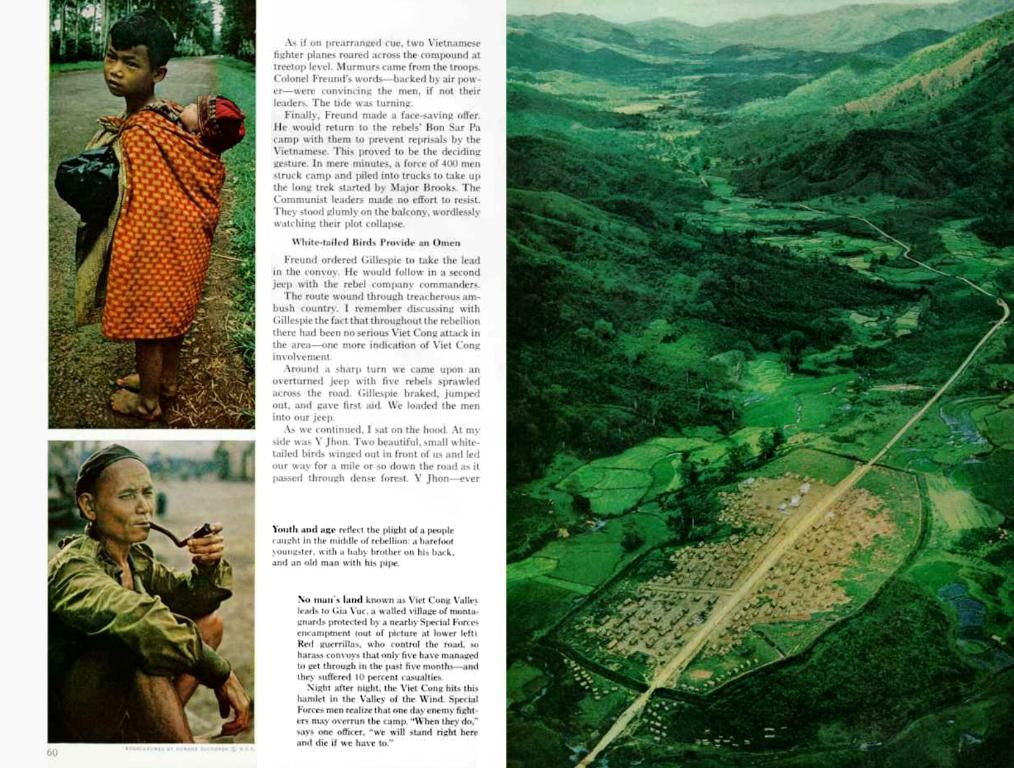Diving Headfirst into the Blue: Rediscovering the Ocean through Eco-Tourism
Environmental expeditions - The case for eco-traveling
Hey there! Today, we're diving into the world of eco-tourism, where the adventure calls, and conservation reigns. Call it a win-win for the environment and the explorer within you!
While a bustling tourist scene might be beneficial for local economies, it often overlooks the impact on wildlife. During my travels across Australia and New Zealand, I yearned to witness the intriguing marine life these countries have to offer, sans harm to the environment or exploitation of wildlife. That's where eco-tourism came to play—offering experiences that leave no footprint but a positive impact.
So, what exactly is eco-tourism?
Think of eco-tourism as responsible and sustainable travel that respects the environment and local communities. It's about forming meaningful connections with our surroundings while ensuring we leave a positive mark. From venturing into conservation areas to touring wildlife reserves and choosing eco-friendly accommodations, eco-tourism opens up a world of opportunities to explore our planet in a mindful and enriching way.
One of my unforgettable moments was swimming alongside enigmatic manta rays in Ningaloo reef. Witnessing these creatures in their natural habitat was awe-inspiring, made even more special due to the attentive guidance of locals who prioritized the well-being and safety of both wildlife and tourists. By following respectful practices, like maintaining a safe distance and avoiding disturbance, we were able to slide through the water in harmony with these majestic creatures. The locals also shared their wisdom of marine conservation, sparking a curiosity that has driven my own journey into the realm of marine conservation.
But why should we go green when we travel?
Supporting eco-tourism is all about making intelligent choices. Many tour operators strive to preserve wildlife and the environment while promoting sustainable livelihoods. By choosing them, you can contribute positively to conservation, all while experiencing the wonders of nature.
Traveling the eco-friendly way: lessons learned
There's no one-size-fits-all approach to eco-tourism, but here are a few strategies that have worked for me:
- Choosing the Right Tour Operators: Look to local companies for ethically sound excursions. Research their certifications, reviews, and values to ensure they prioritize conservation and align with your values.
- Embracing Imperfection: Remember, we're all trying to be better travelers! Don't be disheartened if something doesn't go as planned. Learn from these experiences and be open to improving.
- Support Local Businesses: Select locally-owned accommodations, restaurants, and tour operators for an authentic and eco-conscious journey. You'll not only enjoy a unique cultural experience but also help sustain local economies.
Shaping a Blue Legacy
Each small decision we make towards eco-tourism has rippling effects. While social media helps spark inspiration, personal research helps paint a clearer picture of responsible travel practices. By making informed choices, we can safeguard the beauty of our oceans for generations to come.
Cheers to the Ocean from Amelia!
Join Amelia on her eco-journey—connect with her on LinkedIn, Instagram, or learn how to share your own story as a Wavemaker! While we're at it, check out these platforms to keep the conversation going: Instagram, YouTube, TikTok, LinkedIn, Facebook, Twitter, or drop us an email!
Cover image: Will Nolan
In the realm of eco-tourism, responsible travel not only satisfies the explorer within but also respects and supports marine life and the environment. During a tour in Australia and New Zealand, I had the privilege of swimming with manta rays in Ningaloo reef, an enriching experience made possible by local operators who prioritize conservation and sustainable tourism practices. By choosing eco-friendly tour operators and adopting responsible travel habits like supporting local businesses, embracing imperfection, and researching before embarking on journeys, we can all contribute to safeguarding our ocean's ecosystem for future generations.




